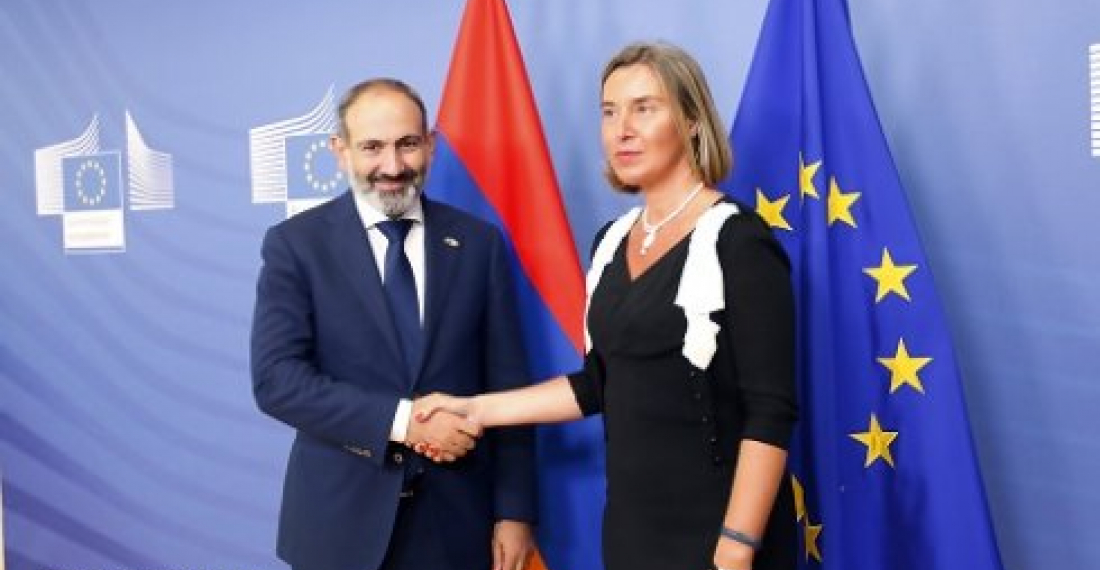Armenian Prime Minister Nikol Pashinyan arrived in Brussels on Wednesday, at the start of his first visit to the capital of Europe, where he will attend the NATO Summit. Shortly after his arrival Pashinyan met with Federica Mogherini, the European Union High Representative for Foreign Affairs and Security Policy. They discussed the latest developments and highlighted the good progress in EU-Armenia bilateral relations.
The two discussed the new Armenian government's clear commitment to reform and the concrete action already taken to this end. "High Representative/Vice-President Mogherini confirmed that the European Union stands ready to provide concrete support to reforms, including through technical and financial assistance, and highlighted the fight against corruption and judicial reform as areas of particular importance. The High Representative also stressed the EU's readiness to provide assistance for the organisation and monitoring of the next elections, to be held in line with OSCE/ODIHR recommendations", said a statement from the European External Action Service
High Representative/Vice-President Federica Mogherini confirmed her and the European Union's strong support for the peaceful settlement of the Nagorno-Karabakh conflict. In this context it is vital that the sides engage fully in negotiations without preconditions, under the auspices of the Minsk Group Co-Chairs, the statement added.
source: commonspace.eu with the press service of the European External Action Service.
photo: Nikol Pashinyan and Federica Morgherini meeting on 11 July 2018 (picture courtesdy of the press service of the Government of Armenia)






